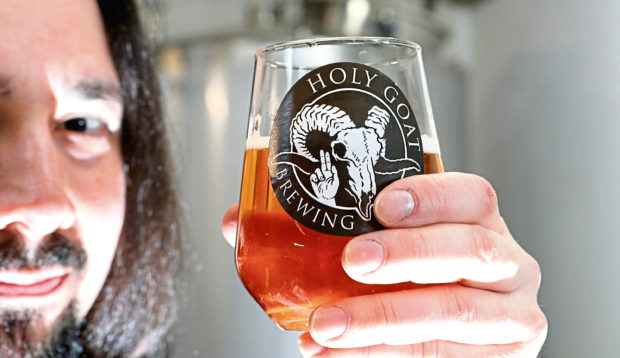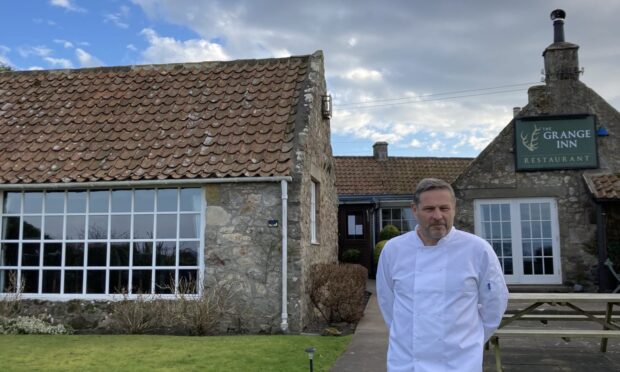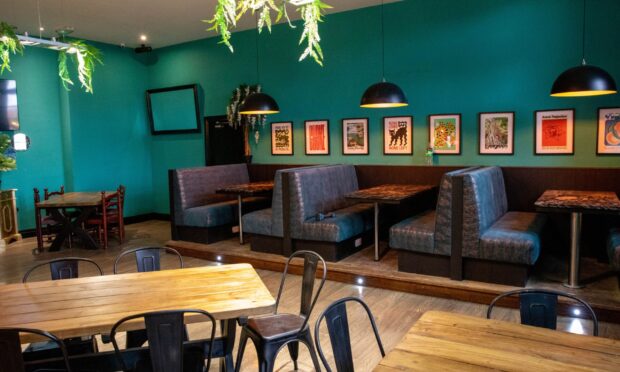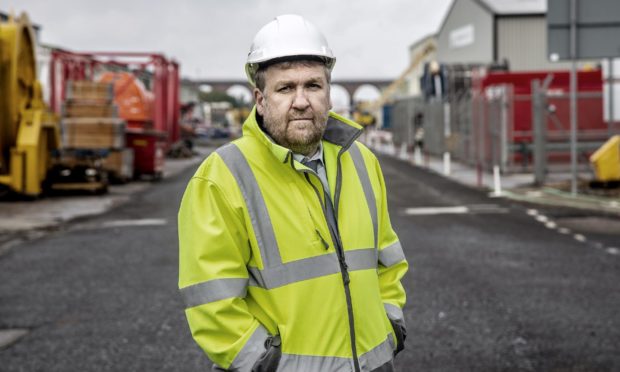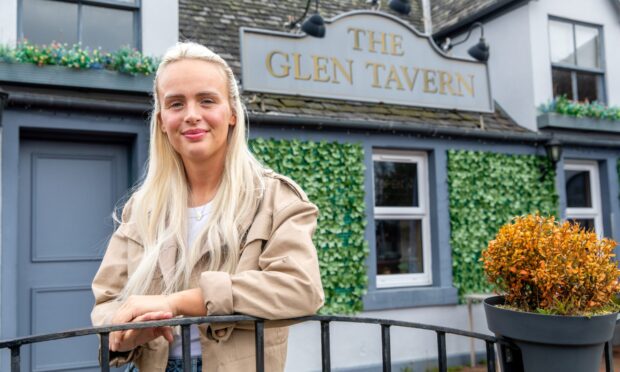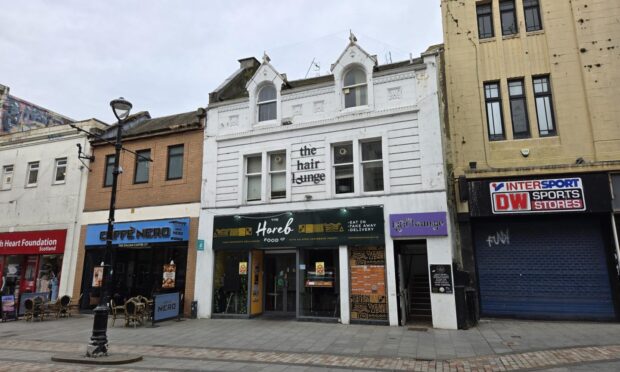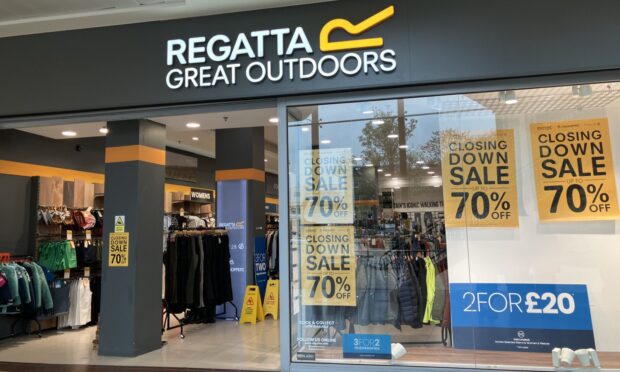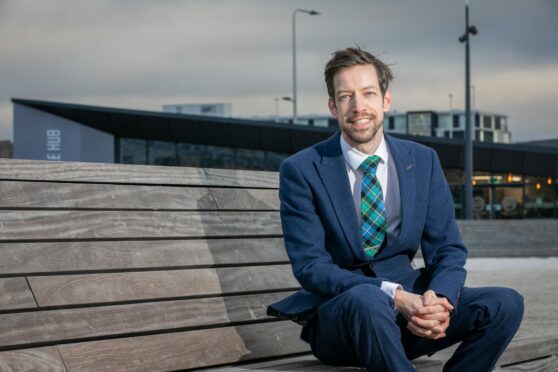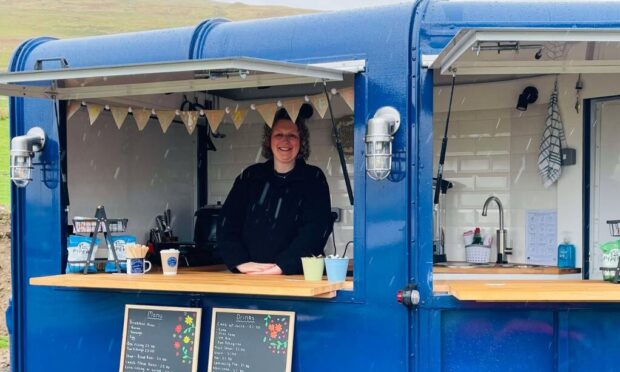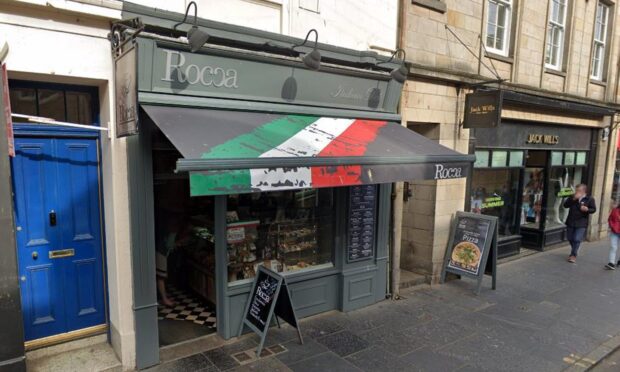Covid brought the economy to a standstill but the entrepreneurial spirit can’t be stopped. Jack McKeown meets the people who set up new businesses during the pandemic.
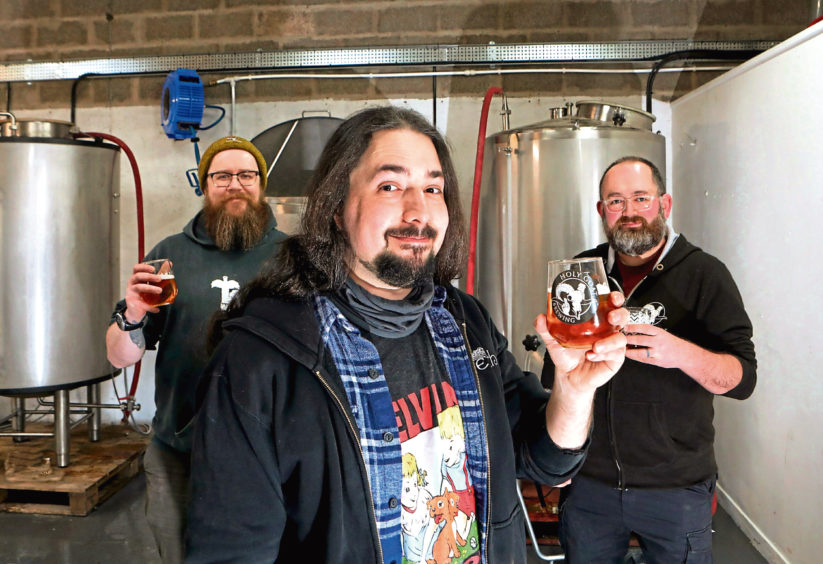
A time when the nation’s pubs have all been closed for months might not seem the most opportune moment to set up a beer brewing company.
Johnny Horn, James Scanlan (affectionately known as “Scan”) and Graham Duff weren’t going to let a small detail like that prevent them starting Holy Goat Brewing though.
The Dundee beer maker was founded last summer and started trading on Halloween – a few weeks before we entered the third covid lockdown.
“Brewing beer when the pubs are all shut might not seem the best idea but we’ve already got a lot of suppliers interested,” Johnny explains.
Scan and Graham, both 41, have been friends for more than 20 years. Johnny, 32, met Scan – appropriately – in the pub and they decided to set up in business together, bringing Graham onboard for website design and marketing.
They’re well educated, Johnny having a PhD in archaeology and Scan being in the final year of a PhD in technology for orchestral music engagement.
“We’re very well educated I’ll have you know,” Scan jokes. “Although of course neither of our areas of expertise have much to do with beer brewing.
“Education definitely helps though. You do really need to geek out with brewing – there’s a lot of measuring and calculating involved.”
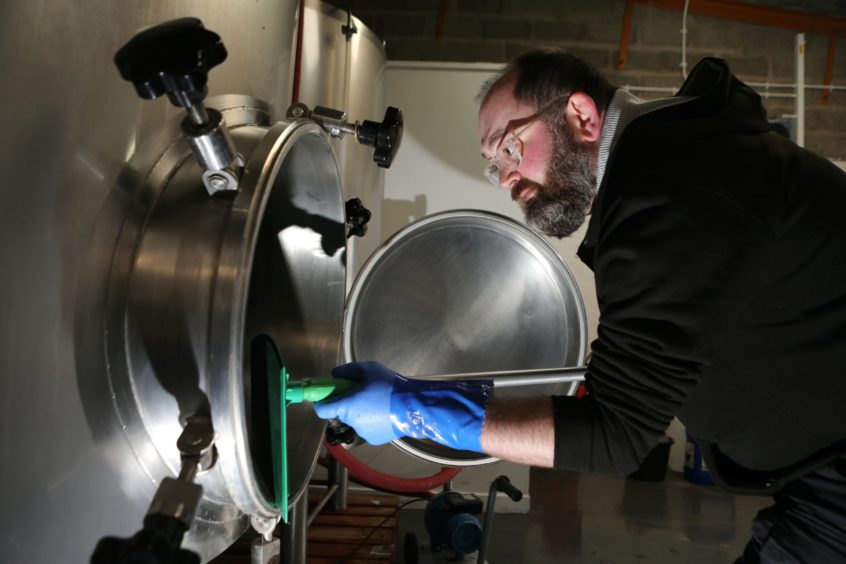
Johnny switched from archaeology – he specialised in the Iron Age – to commercial brewing in 2017, having been involved in brewing since 2012. He co-founded Edinburgh based brewery Vault City and worked at Edinburgh’s Hanging Bat brewery and 71 Brewing in Dundee.
Holy Goat is headquartered in an industrial unit near Dundee University, opposite Law Brewing and across the road from 71 Brewing – making the area Dundee’s culture-ale quarter, if you’ll excuse the dreadful pun.
“I used to work at 71 Brewing and they’ve been very supportive of us,” Johnny explains. “We see each other as comrades not rivals,” Scan adds. “If someone needs to borrow a piece of equipment, needs a shot of a forklift or whatever, we all help each other out.”
Johnny founded the company by selling his shares in Vault City Brewing and the boys are looking to expand by taking out a business loan.
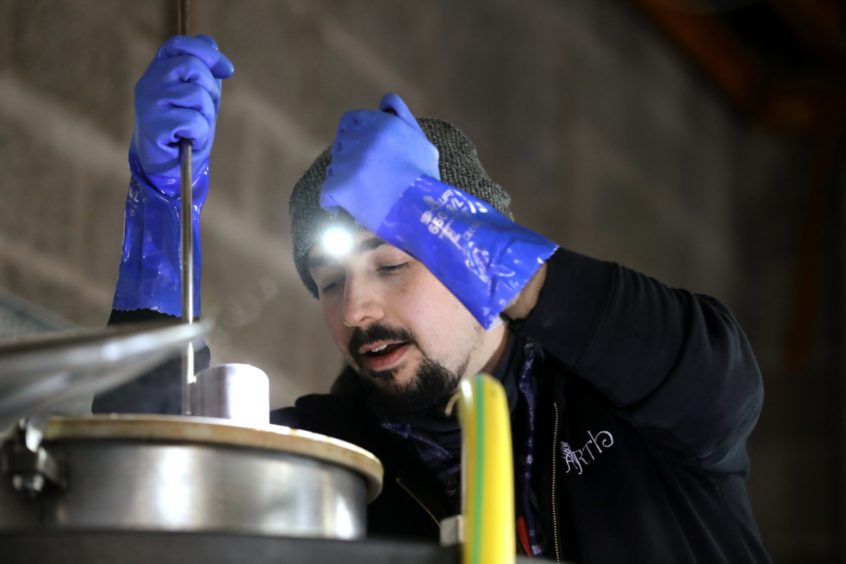
“We’ve also received a lot of support from friends and we’re good at finding deals,” Johnny says. “If you know where to look you can get a lot of the equipment second hand, which is cheaper and better for the environment.”
The beer is brewed in 1,000 litre stainless steel tanks and some of it will be seasoned in barrels. “It’s a slow process,” Scan explains. “The beer takes around 12 weeks before it’s ready and with barrel beer it’s then aged in casks for between one and two years.
“That means we’ll need to charge a higher price for it but there’s a lot of evidence people are willing to pay a premium for beer that’s extra special.”
Brewing will begin this month with the first beers being ready by the end of May. “We’ve had a lot of interest and orders from all over the country, as well as from specialist beer shops on the continent,” Scan says.
Holy Goat will specialise in mixed fermentation and wood-aged beers – sours and saisons – and will use local ingredients.
“Our malt comes from 25 miles away, our oats from 30 miles away,” Johnny explains. “The berries we use are grown next to the Tay. Pretty much all the ingredients we use come from within a 30 mile radius of this building.”
The three friends are being bold with their beer strategy. “We won’t have a signature lager or pilsner,” Scan explains. “Instead we’ll have a constantly rotating range of beers that will always be changing so people can try new flavours.”
Such a strategy has its risks, particularly when it comes to the challenge of constantly innovating. “There will be times when we get it wrong,” Scan admits. “And when we do we’ll be looking at pouring 1,000 litres of beer down the drain.
“We’ve factored that into our business plan though. With barrel ageing beers you only have a success rate of around 80% so there will be some losses.
“It’s worth it to be ambitious. Johnny has an amazing pedigree in brewing so we’ll be using his experience to minimise our losses and maximise our success.”
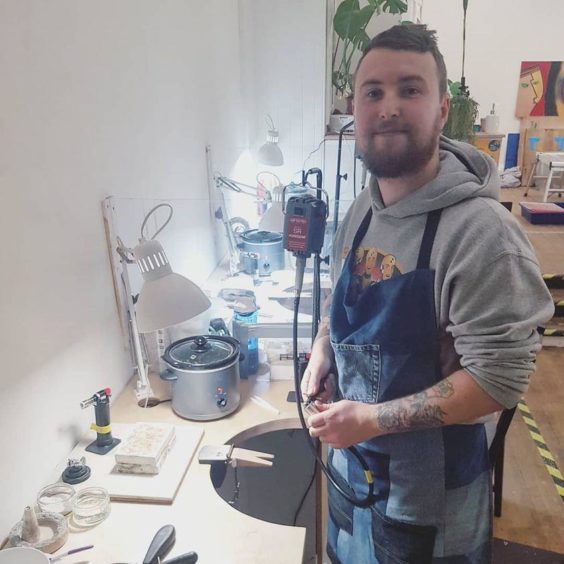
Liam Berge put his job as a bouncy castle deliveryman on hold to start a new career as a silversmith.
The 26-year old from Blairgowrie had taken over his dad’s bouncy castle company last summer but the second lockdown stalled business and he needed to find alternative work.
“I was – and I suppose I still am – a bouncy castle deliveryman,” he says. “My dad ran the business for 28 years and I took over when he stepped back to focus on running his newsagents in Blairgowrie.
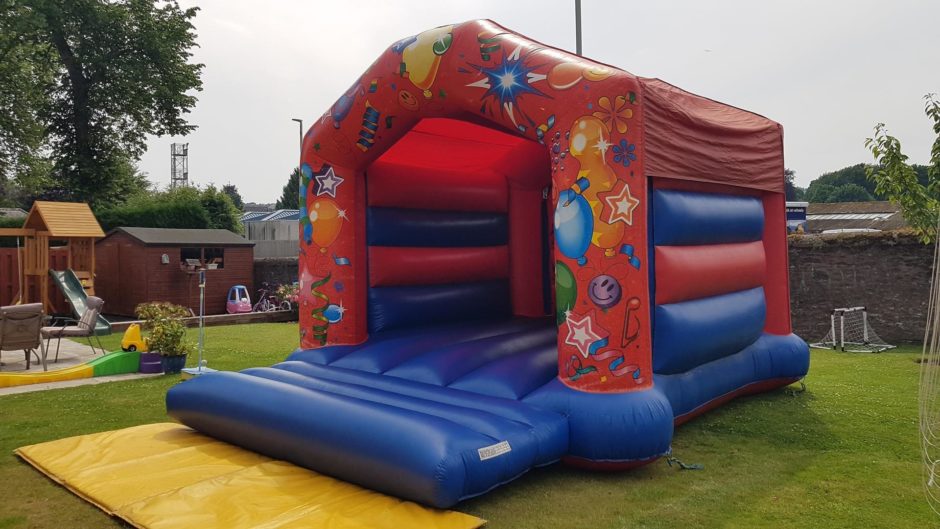
“Normally in the wintertime there is still demand for bouncy castles in town halls but with the pandemic everything is completely dead. I was always into crafts and decided to use the free time I had due to covid to learn something new.
“Initially I took a leatherworking course at Pictavia Leather in Perth. I enjoyed leatherwork and hoped to make enough money selling stuff to pay for materials. However my partner and I both became vegan and I decided working with leather didn’t fit in with that ethos.”
Liam started attending silver smithing classes at SilverHub Studios in Edinburgh and soon found joy in creating jewellery from the precious metal.
The coffee fanatic has even come up with his own niche. “I make jewellery from cast-silver coffee beans,” he explains. “It looks really nice on everything from necklaces to pendants and bracelets.
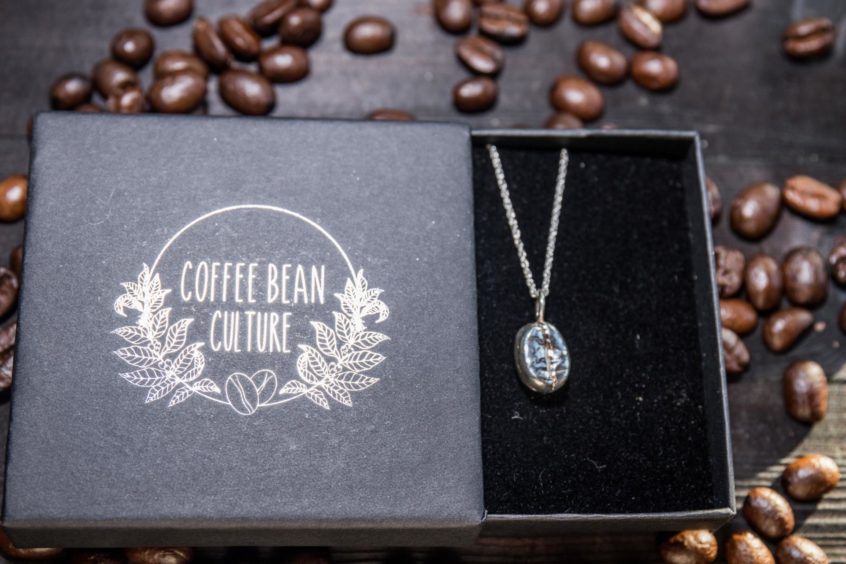
Liam makes his casts from three different coffee beans. Recently he was contacted by television producer Steven Ballantyne, who co-owns a coffee plantation in the Philippines, to commission a cast of their beans. “He had done loads of stuff for the BBC, National Geographic and so on. He seems to be this adventurer figure who’s always in the jungle,” Liam continues.
“He bought a coffee plantation and they do a very unique type of coffee bean, Barako Liberia, so I’ve been asked to create a new product line based on it.”
Liam sells his jewellery on his website, coffeebeanculture.com, and it is also available in Blairgowrie’s Cateran Café.
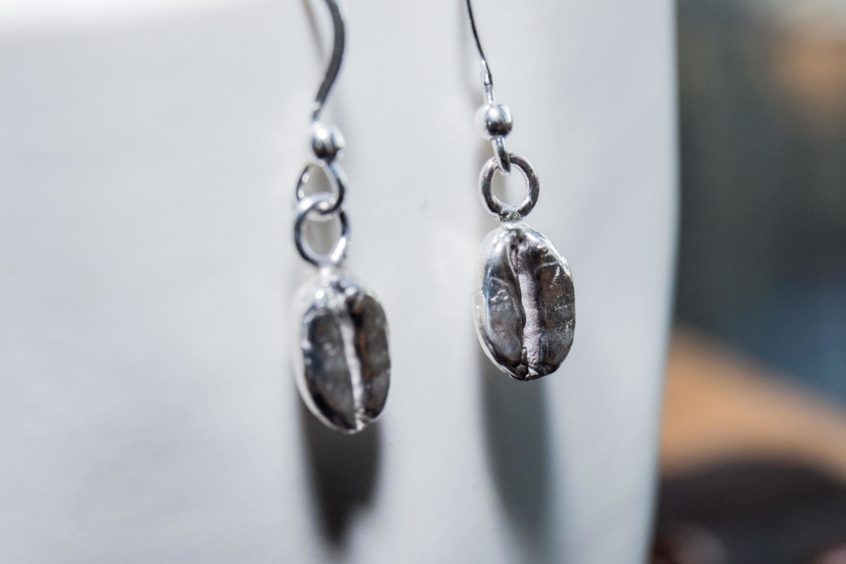
Ultimately he intends to return to work delivering bouncy castles but hopes the two businesses can go hand in hand.
“All I really need is a flat space to work,” he explains. “Previously if I dropped off a bouncy castle in Dundee and had two hours to wait while the party was on it didn’t make sense to go back to Blairgowrie so I would just read a book.
“If I can get a folding workbench in my van I can be using that time to make jewellery.”
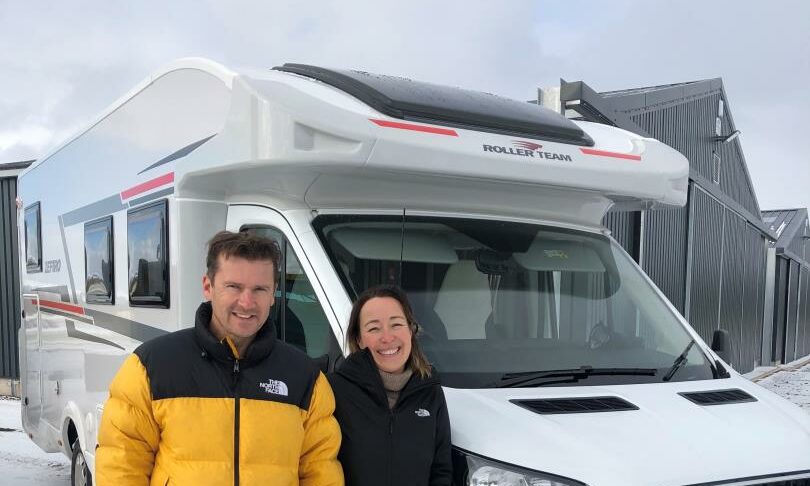
When covid brought the airlines to a standstill a pair of pilots decided to set up their own business offering ground-based travel.
Husband and wife Graham and Sarah Findlay have a combined 50 years of flying between them.
Both were furloughed last year and their long-term prospects are far from certain. The airline industry is one of the sectors most savagely hit by coronavirus and no one knows when it will open up again, or if air travel will ever become as popular as it used to be.
Graham, 49, has been a pilot for 30 years, the last 18 with EasyJet. Sarah, 46, works for British Airways on their London City flights.
Sarah’s job was based out of Edinburgh Airport, however BA has closed that office down and when she returns from furlough London will be her new operating base.
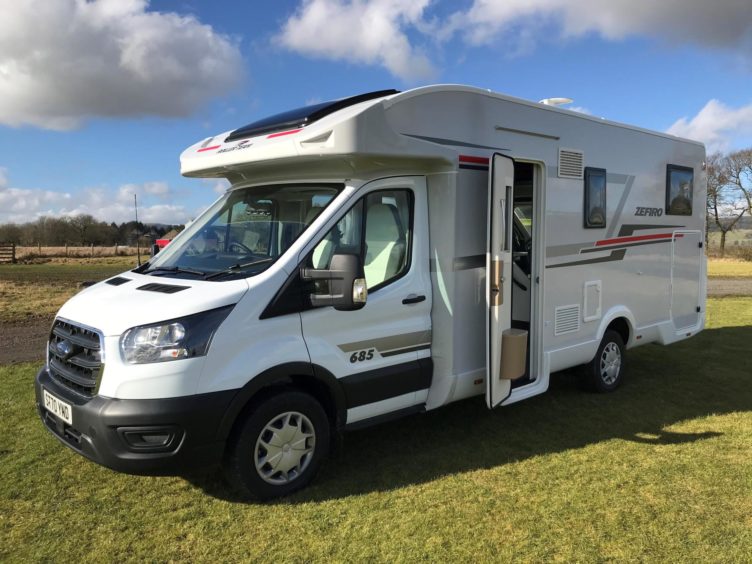
“The damage caused to the airline industry by covid has been phenomenal,” Graham says. “It will be a very long time before it get back to normal, if it ever does. Both of us could be looking at redundancy. We just don’t know.”
Instead of twiddling their thumbs on furlough the couple used the time to set up their own campervan rental business. Stravaig is based out of Kinross and runs three luxury campervans that are available to hire by the week.
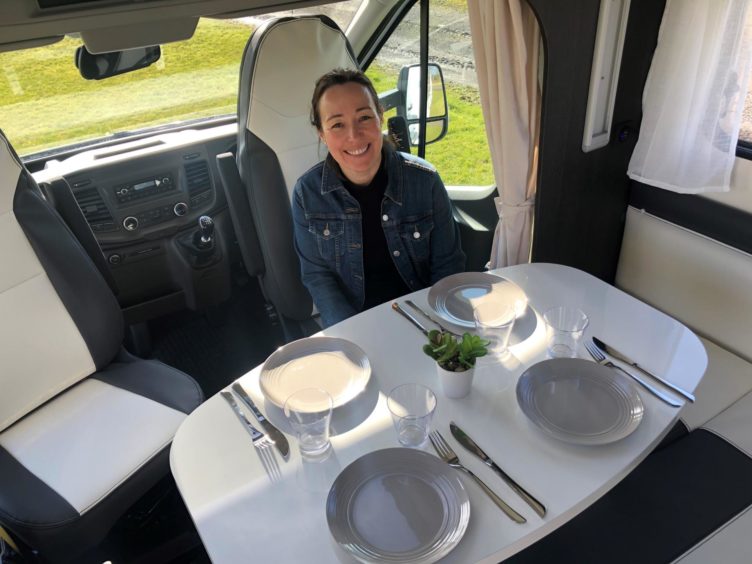
Sarah is a keen Munro-bagger and Stravaig was her idea. “We were keen to get a campervan ourselves and were thinking about renting it out when we weren’t using it, so it could help pay for itself.
“Then we thought, why not go all in by getting a few of them and making a business out of it.”
The couple remortgaged their house to finance the purchase of three luxury motorhomes – four, five and six berth models.
“They cost around £50,000-£55,000 each so it was a significant investment,” Sarah explains. “They do hold their value very well though, so even if it doesn’t work out we shouldn’t lose all our money.”
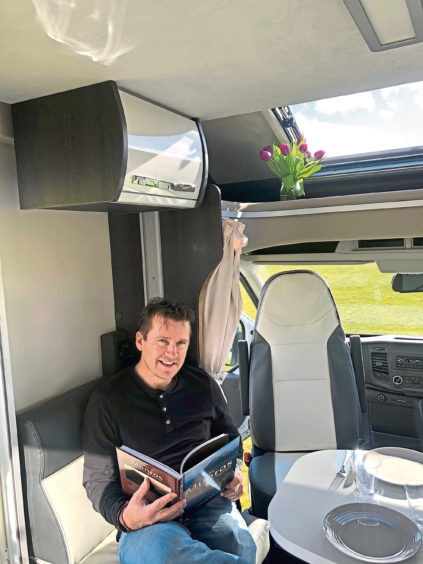
The couple live in Dollar and the campervans are based at Balado Airfield near Kinross. “There’s loads of space there and the surrounding scenery is lovely,” Sarah continues.
The intention is to rent them out for at least a week at a time and promote Scottish routes such as the North Coast 500.
“I’m not trying to come across as a nationalist but Scotland is absolutely beautiful and we want to promote holidaying here,” Graham explains. “The North Coast 500 is a superb route that has become very popular, and there are other fantastic routes we would like to promote.”
One of the downsides of the popularity of the North Coast 500 is local residents have complained about narrow Highland roads being gridlocked by campervans.
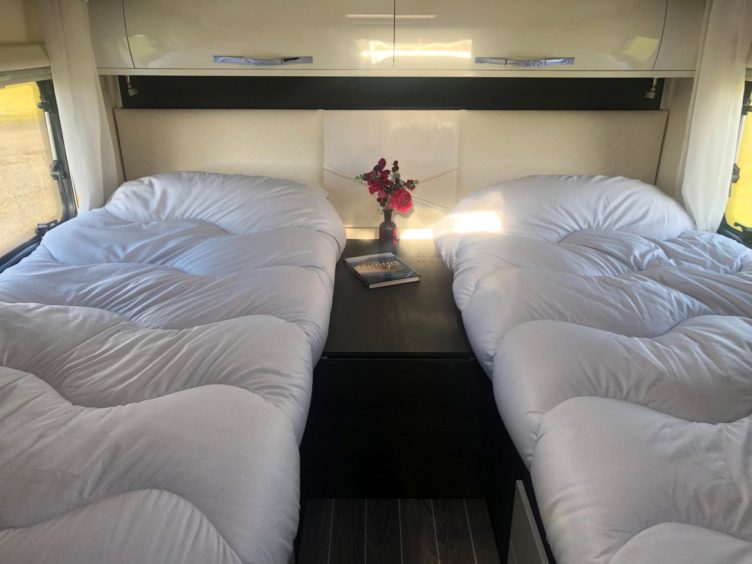
“Since covid started ‘staycations’ have become very popular and unfortunately a minority of campers and motorhome owners have been leaving litter behind,” Sarah explains.
“We want to work in harmony with local people so everyone benefits from our business. Contrary to what people think it’s not actually legal to wild camp in a motorhome. We will encourage our customers to use campsites and local facilities so they put money into the local economy.”
The couple have used the free time lockdown has provided to get their business plan off the ground. “It allowed us to do paperwork and get everything in place,” Sarah says. “I learned web development and set up our website myself.”
Although neither of them know what the future holds, the couple aren’t yet ready to give up their careers.
“I will certainly stay on with EasyJet if I can,” Graham says. “I’ve only got 10 years to go until I can take my pension.”
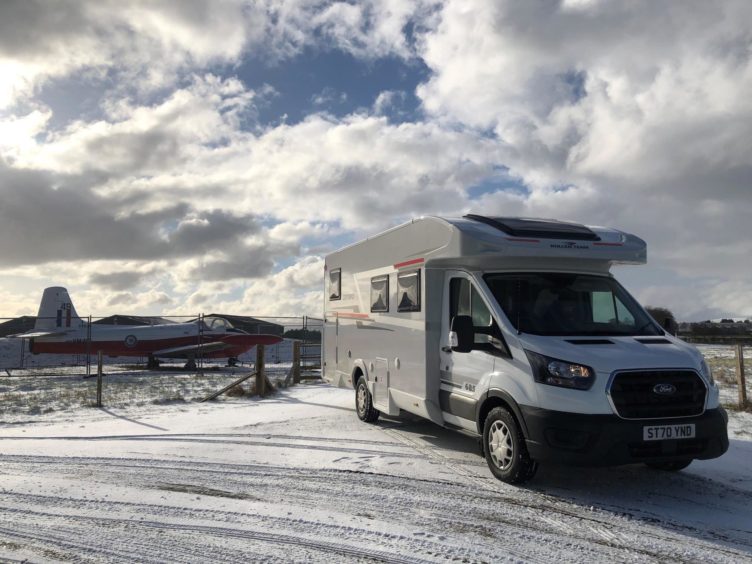
Sarah adds: “We’re intending to run weekly bookings from Saturday to Saturday so that would allow me to work in London from Monday to Friday and still get back to run the business. I’ve put too much into my career to just give it up, but things are very uncertain just now and it’s good to have a backup plan.”
They are committed to the new business, however. “No one knows when restrictions will be lifted,” Graham says. “If we don’t get a season this summer we will be back next year. We’re in this for the long haul.”
